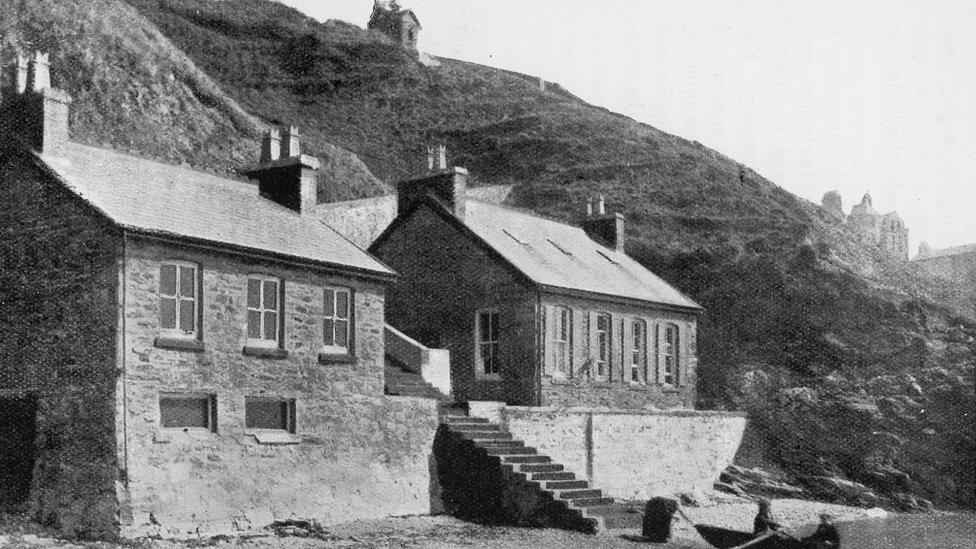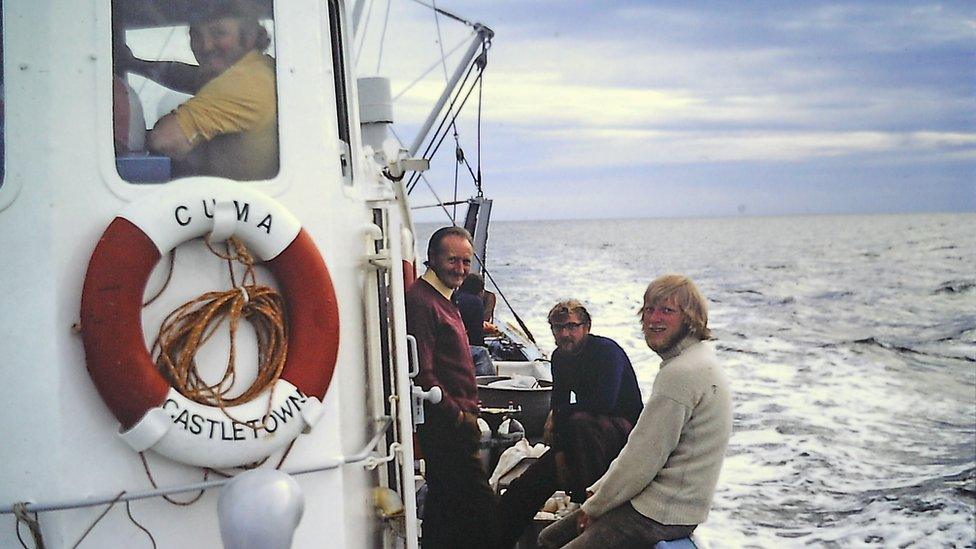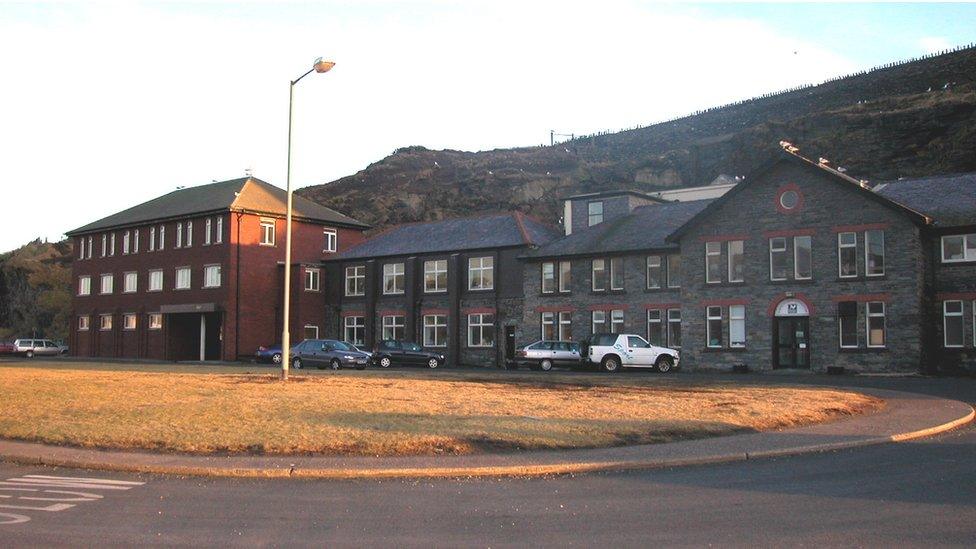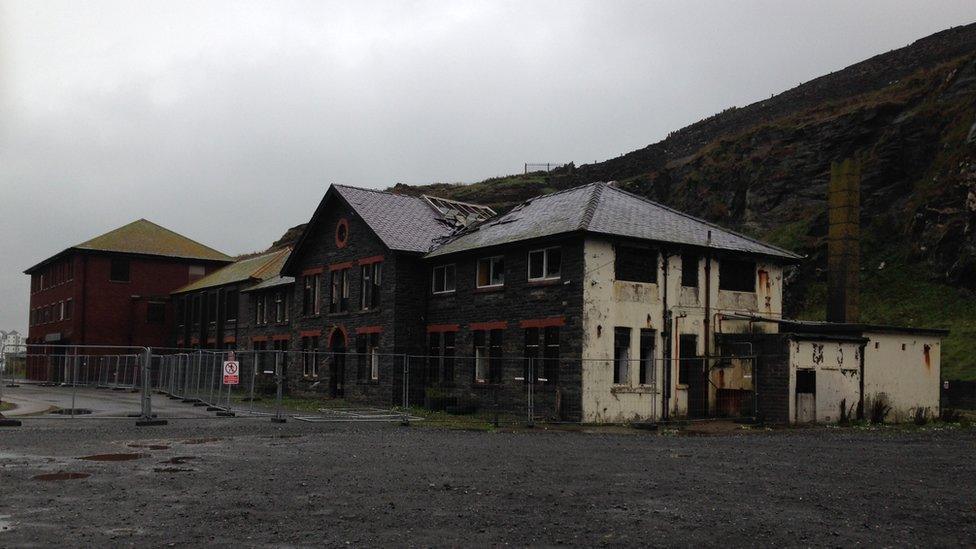Story of famed Port Erin marine laboratory to be celebrated
- Published

Professor Sir William Herdman founded the laboratory in 1892
An exhibition charting the story of an internationally renowned Manx marine laboratory will open next month.
The Winkle Pickers will showcase the contributions to marine science made by those who worked and trained at the now-closed Port Erin Marine Biological Station.
Originally opened in 1892, the facility welcomed thousands of marine biology students until 2006.
The exhibition has been put together by former staff and alumni.

The laboratory was originally located in two small building on Mortuary Beach
The laboratory was originally set up as a base for the Liverpool Marine Biological Committee, which carried out scientific excursions in the Irish Sea.
By 1902, as a result of an increasing number of visitors to the facility for scientific research, it was relocated to a larger site overlooking Port Erin Bay.

Research projects were carried out using the laboratory as a base
A subsequent takeover by the University of Liverpool in 1919 meant many marine biology students were able to get practical experience at the laboratory and in Manx waters.
The facility welcomed its final cohort in 2005, before the laboratory was closed for good in October 2006.
Several attempts since to redevelop the now derelict site have so far not come to fruition.

Many marine biology students studied at the larger site in the 1900s
Peter Duncan, who is part of the team putting the exhibition together, said: "We wanted the exhibition to showcase the diversity of people, their research, and the contributions they made to the Isle of Man, and their scientific fields.
"It starts by charting the origins and establishment of the laboratory in the era of 'Gentlemen Scientists', moving through its university years, and the various people and contributions made during its history, showcasing some of the Laboratory's characters and achievements."
Co-ordinated by Rushen Heritage Trust, The Winkle Pickers - Port Erin Marine Laboratory: A World Leader in Marine Biology (1892-2006), will be on display at St Catherine's Church Hall between 2 and 25 September.

Why not follow BBC Isle of Man on Facebook, external and Twitter, external? You can also send story ideas to IsleofMan@bbc.co.uk, external
Related topics
- Published28 March 2022
